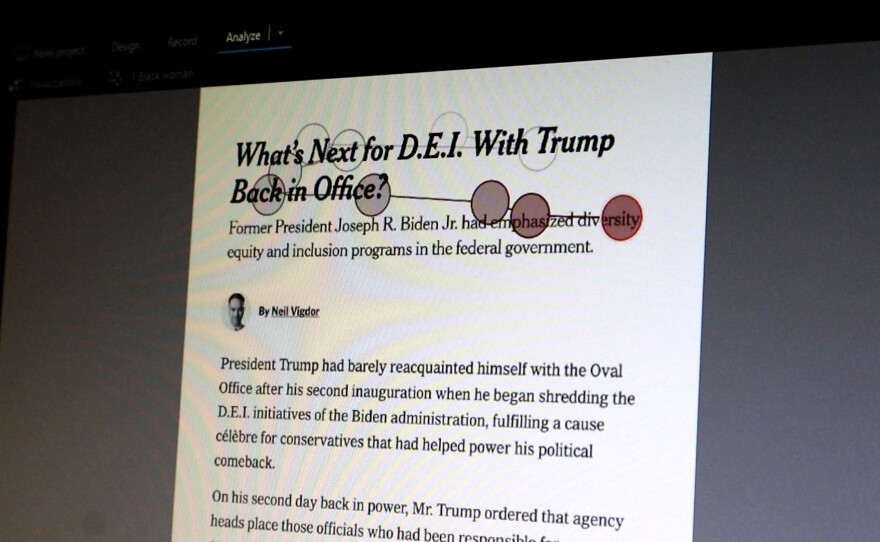Bridget Cole was in graduate school at San Diego State University’s School of Journalism and Media Studies when she first downloaded TikTok, a short-form video sharing app.
“I would find myself taking breaks using TikTok and other social media,” she said.
When she switched back to reading textbooks and articles, she noticed something.
“I found it was really affecting my own attention and being able to really immerse myself and get back into the flow,” she said. “I also felt like maybe I was just skimming through it too fast and having to come back and reread.”
Cole wanted to see if this happened to other people, too. In 2023, she and other researchers conducted a study of more than 200 people.
Using eye-tracking software, they measured how quickly participants read news articles. Some browsed their TikTok accounts for five minutes right before reading. The others didn’t.
“Those who watched TikTok right before going into that newspaper article, we found that they were more likely to go between each (area of interest) or each paragraph, each image, more quickly,” Cole said. “They were just scanning each one and shifting to the next paragraph more quickly than those who did not watch TikTok right before.”

A third of U.S. adults used TikTok in 2023, according to a Pew Research Center survey. It’s especially popular with young people, with more than 60% of 18- to 29-year-olds using it. More and more TikTok users say they regularly get their news on the app.
While many people worry about how social media affects how we process information, empirical evidence is important. That’s according to Nik Usher, a professor at the University of San Diego who studies the connection between big tech, journalism and democracy.
“There's a real dearth of scholarship on this, and so I'm really appreciative of starting to actually see some of this work come out,” they said. “There’s just so much moral panic and we don’t have evidence to answer the questions.”
Usher said it’s important to remember that TikTok and other social media use algorithms to tailor users’ video feeds to their interests.
“My data is being used to target my brain for content that I want to consume. And while that seems maybe harmless, it is not, right?” they said. “It's giving a lot of corporate control to my attention.”
The big takeaway, Usher said, is that apps like TikTok are succeeding at — and profiting off of — how our brains want us to spend our time.





